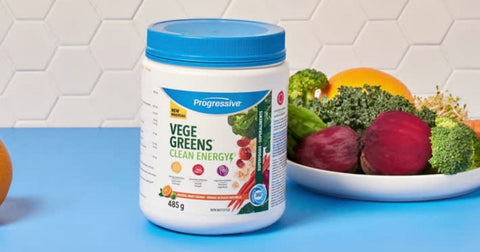Written by the Progressive Nutritional Education Team
Protein: More Than Muscle
Protein is often celebrated for building and repairing muscle and bone, but it plays a much broader role in human health. Enzymes (which catalyze essential reactions like blinking and digestion), hormones, immune responses, and even fluid balance depend on adequate protein intake.
In short, protein is crucial not just for athletes, but for anyone looking to support long-term wellness and healthy aging.
How Much Protein Do You Really Need?
General Guidelines
The RDA (Recommended Dietary Allowance) for sedentary adults is 0.8 grams of protein per kilogram of body weight per day.
New Research on Protein
Emerging research suggests that optimal protein intake may be closer to 1.2–1.8 grams per kg of body weight for improved muscle mass, strength, and metabolic health, especially as we age. Specifically, researchers found that muscle mass and strength were higher among 2986 adults who ate 1.8 grams of protein per kg body weight from any source (meat or plant) compared to those who ate less.
Muscle Mass Matters, Even If You're Not an Athlete
As we age, we naturally lose muscle mass. This is called sarcopenia. Loss of muscle mass can affect everything from balance to independence. Muscle is critical for daily tasks (like lifting your arms or walking upstairs) and even heart function, as the heart itself is a muscle.
Key Takeaway: Preventing muscle loss with adequate protein supports mobility, metabolism, and longevity.
Signs You May Need More Protein
5 Common Symptoms of Protein Deficiency
-
Thinning hair or hair loss
-
Weak or brittle nails
-
Reduced muscle tone
-
Constant hunger or cravings
-
More frequent colds or illnesses
If you're experiencing any of the above, it may be time to reassess your protein intake.
Plant-Based Proteins Are Just As Effective
Top High-Protein Plant Sources
-
Quinoa, amaranth (grain-like seeds with complete amino acid profiles)
-
Peanuts, almonds, cashews
-
Flax, pumpkin, sesame, and sunflower seeds
-
Legumes (lentils, chickpeas, black beans)
Leucine, a key amino acid for muscle building, is found abundantly in many plant foods. And by combining different plant sources throughout the day, you can achieve a complete protein profile.
Finding it hard to eat enough vegetarian proteins? Check out our line of Plant Based Protein Powders.
Bloating from Plant Proteins? Sprouting and Fermenting Can Help
Some plant foods contain phytates, anti-nutrients that can interfere with digestion and mineral absorption. Sprouting and fermenting neutralize phytates and increase nutrient density.
Benefits of Sprouted & Fermented Proteins
-
Better digestion
-
Higher antioxidant content
-
Increased GABA (linked to calm and mood regulation)
-
Improved amino acid profile
-
Lower glycemic index
Don’t have time to sprout and ferment your own protein sources? Progressive’s Harmonized Fermented Vegan Protein offers:
-
23 g of protein per serving
-
Sourced from non-GMO sprouted and fermented Pea, Amaranth, Quinoa, Millet, and Pumpkin Seed
-
Naturally fermented with Lactobacillus plantarum and Saccharomyces cerevisiae for digestive support
-
Available in: Chocolate, Vanilla, Vanilla Maple Cookie, and Unflavoured
TLDR: Support Your Body With the Right Kind of Protein
Protein is essential at every life stage. Whether you're active, aging, or simply aiming to eat better, ensuring digestible, high-quality protein is key. Choose sources that go beyond basic nutrition, like grass-fed whey, sprouted and fermented plant protein powders to unlock better performance, recovery, and overall vitality.








